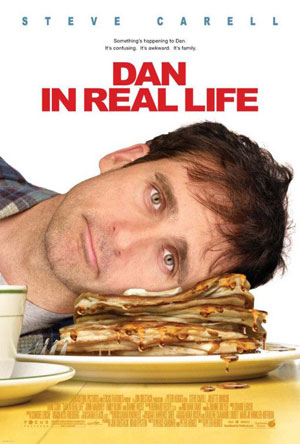

In
Pan's Labyrinth Guillermo del Toro manages to create a beautifully intricate, yet intensely violent fairy tale set in Spain, 1944 during the Spanish Civil War. Throughout the course of the film, the fantasy and reality worlds mingle until it is difficult to draw the line between what indeed is fact and when it crosses over into fiction. Del Toro's film is abounding with alluring scenery and lighting, elaborate costume designs, a score ominous enough to keep me tingling and awake long enough to write this blog, and an absolutely stunning and convincing cast. Originally tempted to delve into the wonders of Doug Jones and his magnificent portrayal of both the Faun and The Pale Man (as well as how he passed the time in those five hours it took to get into each costume), as well the fascinating puppeteering and CGI work that went into creating the plethora of magical creatures and items peppered throughout the movie my attention was unexpectedly captured by something--rather some
one--else, and that is the director (and screen writer) Guillermo del Toro himself.
In all fairness,
Pan's Labyrinth is the only one of del Toro's films that I have actually watched and though I now feel obliged to enlighten myself with more of his undoubtedly beautiful works, at this present moment I am not properly equipped to compare
Pan's Labyrinth with any of his other films including
Cronos,
Mimic,
Hellboy, and Pan's sister-film
The Devil's Backbone. Instead, what captivated me about Guillermo del Toro was his blaring passion and involvement with this film.

Perhaps the most notable fact about Guillermo del Toro is his 20-year-old notebook that he takes with him everywhere and even lost during the production of
Pan's Labyrinth. Within it are all his doodles, scribbles, ideas, drawings, and plots and it is the inspiration for all of his films, and with its disappearance he became immensely distraught. However, in what Del Toro describes as a magical act, the cabbie who's taxi he had left his sketchbook in returned it to him two days later and Del Toro literally emptied his wallet giving the man everything he had which totaled up to about $1,000.
When listening to the director's cut for Pan's Labyrinth, it doesn't take long to realize the passion he has for film making and storytelling. He pays meticulous attention to all the details, such as his request to have the camera almost constantly in motion to give the film a drifting, unstable feeling. He gives very precise, accurate direction for what he expects his crew to do and will expect no less--and certainly does not let it go unnoticed when someone goes above and beyond his expectations.
Another admirable thing about Del Toro is that he knows what he wants in his films and will not let anyone deter him or tell him otherwise. In Spain, actor Sergi López who was to portray the the most vile and unlikable character, Captain Vidal, was known for his melodramatic, comedic acting. Similarly cast against her norm was Maribel Verdú, often portraying a steamy sexpot, now played the ever so solemn and silently rebellious Mercedes in the not-so-sexy story of Pan's Labyrinth. When informed by another man that he was making a horrible mistake and miscasting these characters Del Toro calmly informed him that it wasn't that he didn't know, but simply that he didn't care.

Throughout the director's cut, Guillermo del Toro seemed very pleased and proud of the significant yet subtle color palettes used throughout the film. He used faded blues to portray the real world, a green gel filter to emphasize the nature aspect (namely the moss) in the Faun's lair, and a warm golden palette to portray the wonder and magic of Ofelia's fantasy world. If you pay attention throughout the film, you will see these palettes contrasting each other rather sharply at certain points in the film. Another aspect of Pan's Labyrinth that del Toro seemed to take evident pride in was the wipe effect utilized throughout the film. Oftentimes the characters would disappear behind a tree or other structure that would momentarily obscure the entire screen, before revealing a new shot or scene altogether. Del Toro described this wipe transition as having the effect of turning the pages of a story.
Clearly, Guillermo del Toro invested a lot into Pan's Labyrinth. Not only did he use $100,000 of his own money (later splitting the cost halfway with a friend also working on the film) to get the early production started, in the end he gave up not only his producer's cut of the film, but also his director's cut. In a similar act of devotion to his film, he also spent an extra month after the movie's production subtitling the film himself. He felt the subtitles for his last film were extremely bad, meant for the unintelligent and he did not wish for the viewers to feel as if they were watching a subtitled movie. It is due to del Toro's sacrifices, passion, amazing insight and imagination, knack for storytelling as well as his devotion to his work that made Pan's Labyrinth the absolutely fantastical film we now know and love.
Sources:
Surprises lurk inside 'Pan's Labyrinth'
Del Toro: Drawn to the Dark SideAudio Commentary on DVD by director Guillermo del Toro
 Ah, film noir. Hard-boiled detectives, yummily seductive women, and quick-paced mystery storylines which inevitably lead to violence in frighteningly dark, sense-of-impending-doom inducing settings. What more could you want from a movie?
Ah, film noir. Hard-boiled detectives, yummily seductive women, and quick-paced mystery storylines which inevitably lead to violence in frighteningly dark, sense-of-impending-doom inducing settings. What more could you want from a movie?







